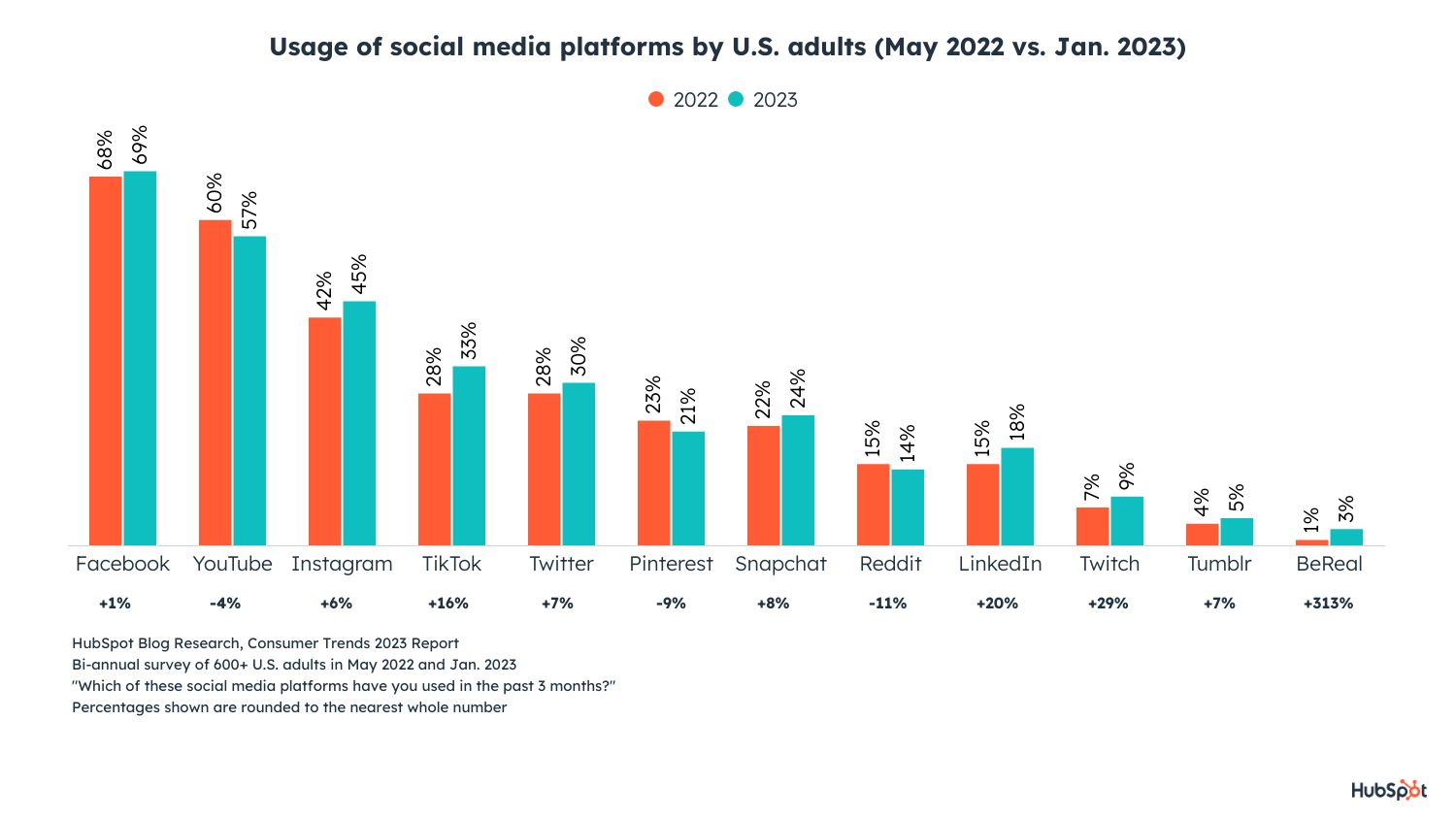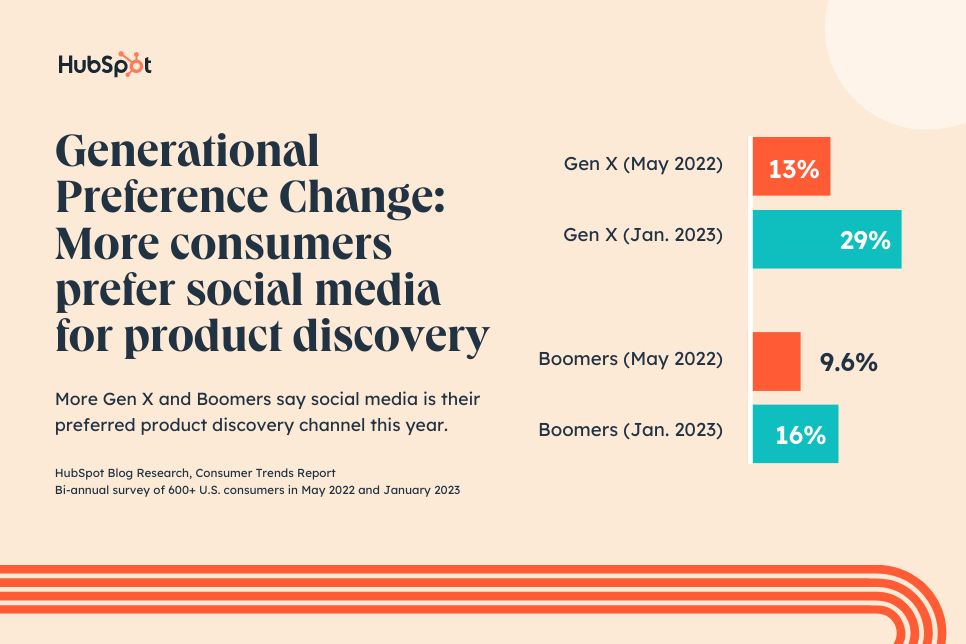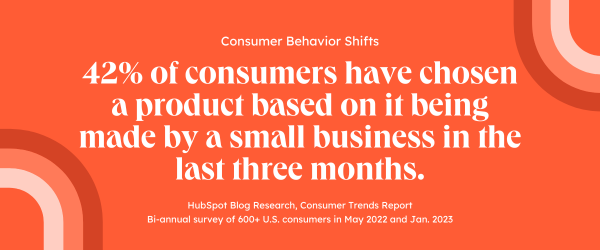The 4 Biggest Consumer Behavior Shifts of 2023 [According to New Data]
Your marketing strategy can’t stay stagnant if the people you’re selling to are changing their behavior — you have to adapt and learn how to cater to them. Marketers should look for observable differences in buyer behavior to continue meeting their needs.
To help marketers and other business professionals make more data-informed decisions, we’ve conducted a bi-annual survey of 600+ U.S. consumers to better understand how adults spend their money.
Using HubSpot Blog Research from our Consumer Trends Report, we’ll explore the nature of the biggest consumer behavior changes between May 2022 and January 2023 so that you can keep up.
Biggest Consumer Behavior Shifts
1. Consumers are warming up to purchasing products through social media apps.
In May 2022, only 12% of consumers preferred purchasing products through social media apps like Instagram Shop or Facebook Marketplace. In the past three months, 41% of social media users have shared that they feel comfortable purchasing on social media platforms.
That behavior shift is astounding. More than ever, social media marketers are more likely to impact consumer behavior by sharing content that builds interest and trust through these channels.

HubSpot Blog Research also found that the most popular social media platforms, Facebook, Instagram, YouTube, and TikTok, are the most preferred platforms for social shopping. Social shoppers also say Instagram and Facebook have the best in-app shopping experience.
These apps have very easy-to-use shopping interfaces, and it’s plain to see why they can sell or influence users. When consumers watch or interact with the content they enjoy and receive ads relevant to their interests, the products seem more valuable to their hobbies and lifestyles.
2. Gen X and Boomers are shopping through social media more, not just younger gens.
29% of Gen X (up 16% from May 2022) and 16% of Boomers (up 60%) say social media is their preferred product discovery channel. This shift is huge for generations that typically claim to prefer learning about products through TV ads and internet search.

Social media usage isn’t just something teens use every day. Older generations use it just as often. Social networking provides entertainment, community, and a more dedicated space for window shopping.
3. Support for small businesses isn’t dying down — it’s growing.
42% of consumers have chosen a product based on it being made by a small business in the last three months, up 8% from May 2022.

The later effects of the pandemic may be behind this behavior shift. Many consumers saw some of their favorite mom-and-pop shops close due to lost funds from decreased traffic and customers. Now that the worst of COVID is over, many consumers haven’t forgotten to support smaller businesses.
Another reason for supporting small businesses is the shopping experience itself. Many consumers enjoy shopping small due to:
- Product diversity that chains don’t offer
- More hands-on and personable customer service
- The positive feeling of giving back and building a community
4. Consumers are shopping more consciously, supporting businesses with corporate responsibility.
Along with support for the local community, consumers are giving more of their money to companies that take a political stand on issues they care about. These three causes are among the most important to them:
- Racial justice
- Climate change initiatives
- LGBTQ+ rights
Consumers want to support a company that pays it forward. They want to impact the world around them as they become more informed on news of global political unrest and other issues.
Businesses have much to gain from implementing socially responsible initiatives, programs, or donations to attract and retain customers. It may be the leading decision factor behind your next customer’s purchase between you and your competitor.
Keep Up with Consumer Behavior Trends
One of the most significant risks a marketing team can make is failing to adapt to changing consumer behavior shifts. Stay informed on your customers’ behaviors and ensure you meet their needs — even as they change.
![]()


